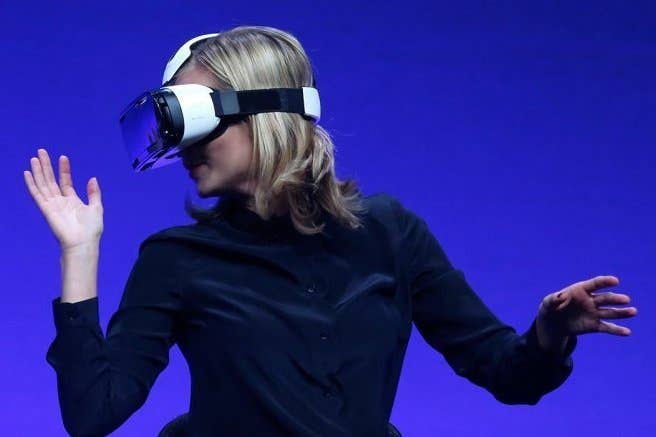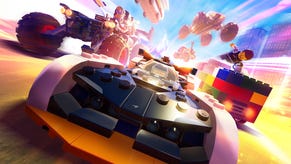VR sickness cannot be solved by hardware improvements alone
Walt Disney Imagineering's Bei Yang points to game design as an ever present risk of sickness in virtual reality
The battle against motion sickness in the burgeoning scene for VR development is far from over. In fact, it may never be, despite the assertions of Valve's Gabe Newell.
At least, that was the inference of the opening session at GDC today, delivered by Bei Yang, a Creative Technical Design Lead at Walt Disney Imagineering. To simplify a fairly elaborate job title, Yang helps to make the rides and experiences at Disney theme parks possible, meaning that he has a great deal of experience with the sort of techniques that VR developers are only now starting to consider.
According to Yang, the conversation around motion sickness has run aground on latency, which creates the "mismatch" between the virtual experience the player sees with their eyes, and the physical experience registered in their inner ear.
"Even when you have perfect VR you can still get sick"
Bei Yang
This can occur in two ways, the most common of which - "end to end latency" - is the length of time it takes VR hardware to turn motion tracking information and feed it back to the player's virtual experience. The other is "variability of latency," because while the human brain is remarkably good at adjusting to new circumstances, it needs to do so every time those circumstances change. Any change in the size of the latency, therefore, can also cause sickness.
In an interview with the New York Times earlier this week, Valve's Gabe Newell claimed that Vive, the VR technology the company has developed in tandem with HTC, makes "zero per cent of people" motion sick. Now, while that may be true in terms of the latency issue, Yang listed another way in which VR experiences can make people sick that has nothing to do with technology, and one that can never be eradicated entirely.
"Let's fast forward a few years, maybe even a decade, to when we have perfect VR," he said. "Even when you have perfect VR, you can still get sick. Why do I say this? Because I know for a fact that what makes you sick in real life will make you motion sick in VR.
"In 3D shooters right now, you can do what is known as a zero-point turn [effectively spinning around on the spot]. If you guys stood up now and did that for, like, 20 seconds, I guarantee some of you would be dizzy and some of you would be sick.
"So when you're designing player experiences now, when we don't have perfect VR, you must avoid fast player rotations. Use design to avoid these movements. When we walk around it's not in zero points. When we look at an object, we actually rotate around the object."
"When you think about VR, I really want you to think about it as more than just head-mounted displays"
Bei Yang
Motion sickness, it seems, is as much a design issue as a hardware issue, so any proclamation that the problem has been solved for good can only be partly accurate.
Games designed in certain ways will be just as likely to make a player using the Vive sick as a player using any of its competitors. The problem is exacerbated by those approaches to design being commonplace in games we play without issue on traditional platforms.
And it may well be imperative that game designers take these issues seriously, because, in Yang's view, the future of virtual reality will influenced and created by what happens in gaming. "You are positioned to the best bearers of virtual reality and the creation of virtual experiences," he said.
"When you think about VR, I really want you to think about it as more than just head-mounted displays."









